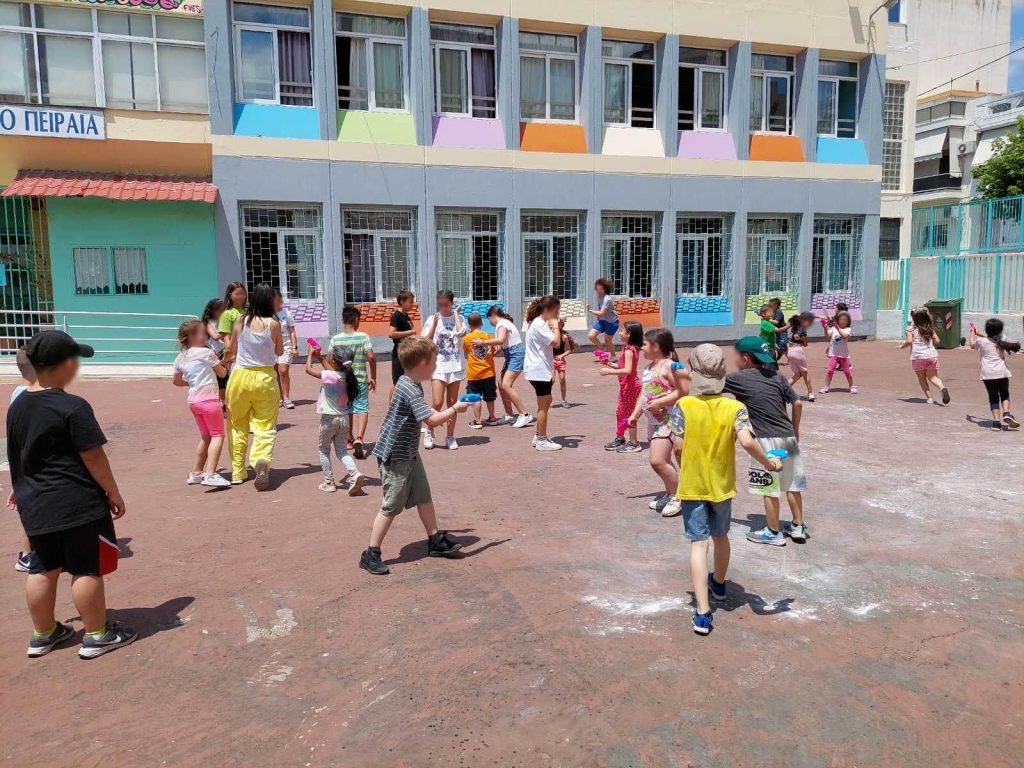Dialogic Literary Gatherings (DLGs) and the dialogic model of conflict prevention and resolution were used on a weekly basis, as well as the basic methodology of interactive groups (IGs). During the first two practices, students from older classes were invited to participate as guests, in cooperation with their responsible teachers. In IGs the teachers helping specific children with diagnosis of autism acted as coordinators of groups under the coordination of the classroom’s teacher.
9th Elementary school of Piraeus
Piraeus, Greece
Impact and successes
DLGs and more specifically the dialogic model of conflict prevention and resolution was used to nurture team-bonding between children of the same classroom and enhance social skills. After months of work, children were able to reflect on ‘tough’ issues despite their young age. More specifically, due to the loss of a parent for some of the children, a series of DLGs were organised where they were able to reflect through discussion and drawing on the subject of loss, using Aesop’s myths as a starting point.
Lessons, learning and recommendations
Involving older students during some of the DLGs as a practice helped initiate dialogue between students of the youngest age. As months went by, it was used as a way to ‘break the routine’ and challenge the younger students to evolve their thinking. Language improvement was observed, as well as – and most importantly – the social interaction among students. At the end of the year, it was clear that a group of students with strong bonds of respect and trust had been formed, which attained a surprisingly high level of ability to resolve conflicts in a respective manner. The bond was extended to the teachers involved in the classroom and was secured by the presence of the leading teacher.